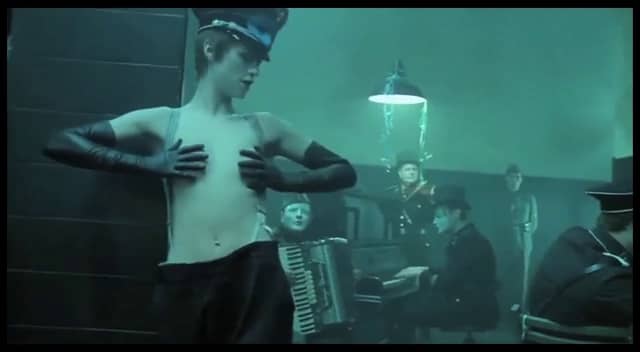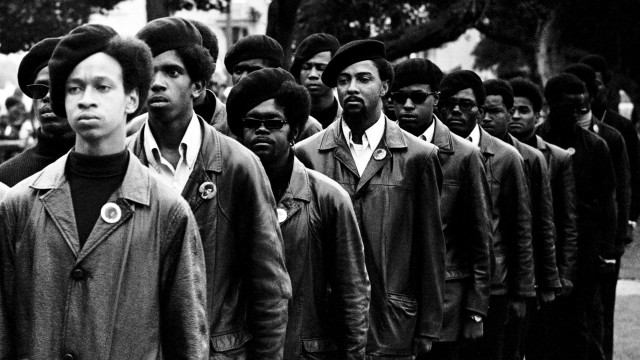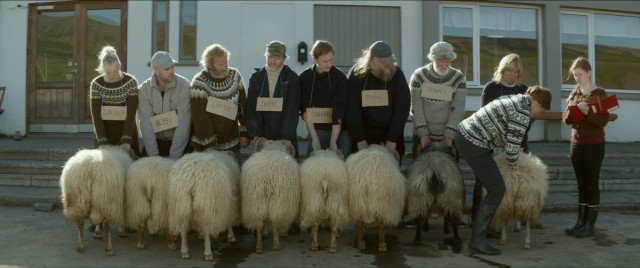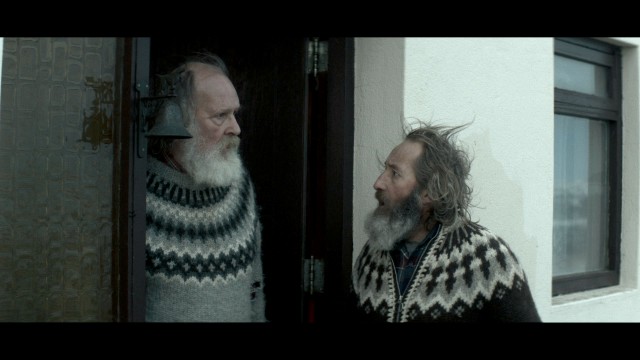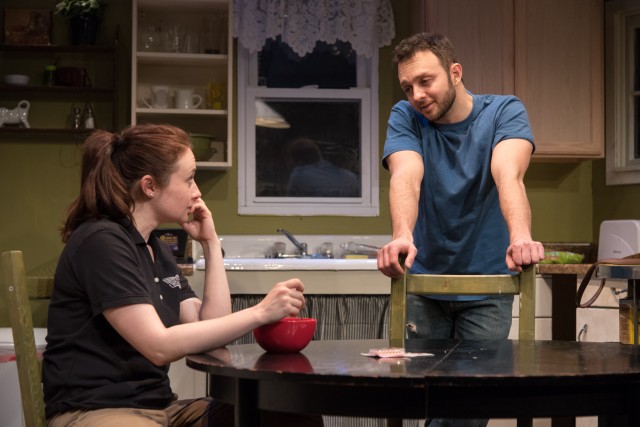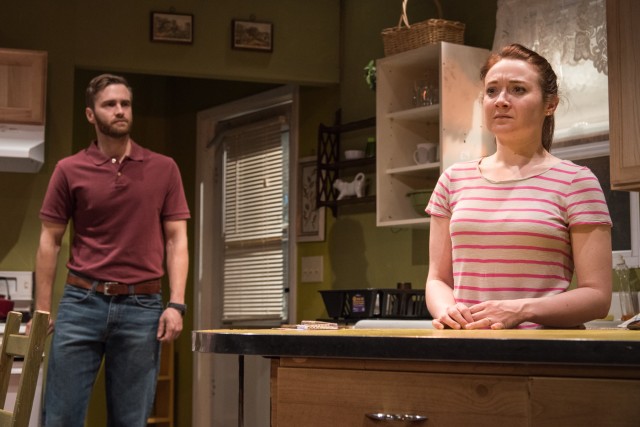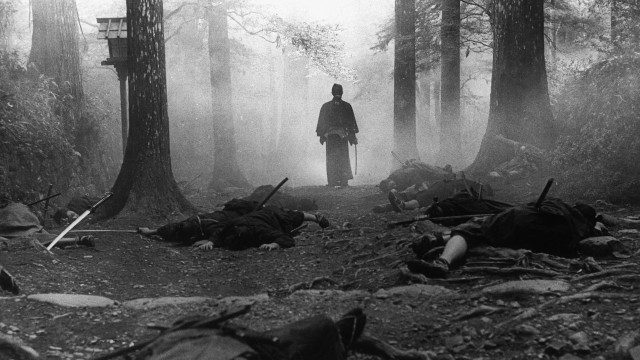
Rogue samurai Ryunosuke Tsukue (Tatsuya Nakadai) leaves a path of bodies behind him in THE SWORD OF DOOM
THE SWORD OF DOOM (大菩薩峠) (THE GREAT BODHISATTVA PATH) (Kihachi Okamoto, 1966)
Japan Society
333 East 47th St. at First Ave.
Friday, February 5, $12, 7:00
212-715-1258
www.japansociety.org
 Japan Society’s Monthly Classics series continues February 5 with the story of one of the screen’s most brutal antiheroes, a samurai you can’t help but root for despite his coldhearted brutality, a heartless killer called “a man from hell.” Based on Kaizan Nakazato’s forty-one-volume serial novel Dai-bosatsu Tōge, Kihachi Okamoto’s The Sword of Doom, aka The Great Bodhisattva Pass, begins in 1860 with Ryunosuke Tsukue (Tatsuya Nakadai) slaying an elderly Buddhist pilgrim (Ko Nishimura) apparently for no reason as the man visits a far-off mountain grave. Shortly before Ryunosuke is to battle Bunnojo Utsuki (Ichiro Nakaya) in a competition using unsharpened wooden swords, the man’s wife, Ohama (Michiyo Aratama), comes to him, begging for Ryunosuke to lose the match on purpose to save her family’s future. A master swordsman with an unorthodox style, Ryunosuke takes advantage of the situation in more ways than one. As emotionless as he is fearless, Ryunosuke is soon ambushed on a forest road, but killing, to him, comes natural, whether facing one man or dozens — or even hundreds. The only person he shows even the slightest respect for is Toranosuke Shimada (Toshirō Mifune), the instructor at a sword-fighting school. “We have rules concerning strangers,” Toranosuke tells him, but Ryunosuke plays by no rules. “The sword is the soul. Study the soul to know the sword. Evil mind, evil sword,” Toranosuke adds, words that torment Ryunosuke, who tries to start a family in spite of his hard, detached demeanor. But regardless of circumstance, Ryunosuke continues on his bloody path, culminating in an unforgettable battle that is one of the finest of the jidaigeki genre.
Japan Society’s Monthly Classics series continues February 5 with the story of one of the screen’s most brutal antiheroes, a samurai you can’t help but root for despite his coldhearted brutality, a heartless killer called “a man from hell.” Based on Kaizan Nakazato’s forty-one-volume serial novel Dai-bosatsu Tōge, Kihachi Okamoto’s The Sword of Doom, aka The Great Bodhisattva Pass, begins in 1860 with Ryunosuke Tsukue (Tatsuya Nakadai) slaying an elderly Buddhist pilgrim (Ko Nishimura) apparently for no reason as the man visits a far-off mountain grave. Shortly before Ryunosuke is to battle Bunnojo Utsuki (Ichiro Nakaya) in a competition using unsharpened wooden swords, the man’s wife, Ohama (Michiyo Aratama), comes to him, begging for Ryunosuke to lose the match on purpose to save her family’s future. A master swordsman with an unorthodox style, Ryunosuke takes advantage of the situation in more ways than one. As emotionless as he is fearless, Ryunosuke is soon ambushed on a forest road, but killing, to him, comes natural, whether facing one man or dozens — or even hundreds. The only person he shows even the slightest respect for is Toranosuke Shimada (Toshirō Mifune), the instructor at a sword-fighting school. “We have rules concerning strangers,” Toranosuke tells him, but Ryunosuke plays by no rules. “The sword is the soul. Study the soul to know the sword. Evil mind, evil sword,” Toranosuke adds, words that torment Ryunosuke, who tries to start a family in spite of his hard, detached demeanor. But regardless of circumstance, Ryunosuke continues on his bloody path, culminating in an unforgettable battle that is one of the finest of the jidaigeki genre.
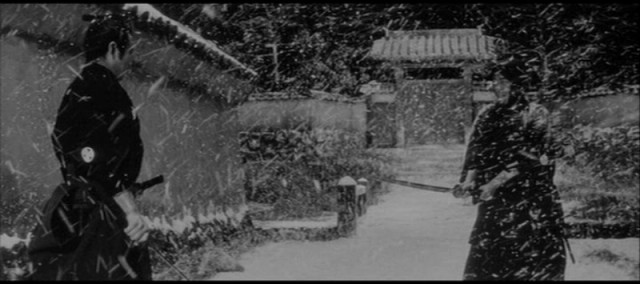
A snowy battle is one of the many highlights of Kihachi Okamoto classic
The Sword of Doom boasts a memorable performance by Nakadai, the star of such other classics as Masaki Kobayashi’s Harakiri, Hiroshi Teshigara’s The Face of Another and Samurai Rebellion, and Okamoto’s Battle of Okinawa and Kill!, as well as many Akira Kurosawa films, including Yojimbo, Sanjuro, High and Low, and Ran. In The Sword of Doom he is reunited with Aratama, who played his wife in Okamoto’s masterpiece trilogy, The Human Condition. Nakadai is brilliant as Ryunosuke, able to win over the audience, riveting your attention even though he is portraying a horrible man who rejects all sympathy. Also contributing to the film’s relentless intensity are Hiroshi Murai’s gorgeous black-and-white cinematography, which features a beautiful sword fight in the snow and an exquisitely photographed scene in a claustrophobic mill, and Masaru Sato’s sparse but effective score. The Sword of Doom is a masterful tale of evil, of one man’s struggle with inner demons as he wanders through a changing world. The Monthly Classics series continues on April 1 with Kurosawa’s Stray Dog.
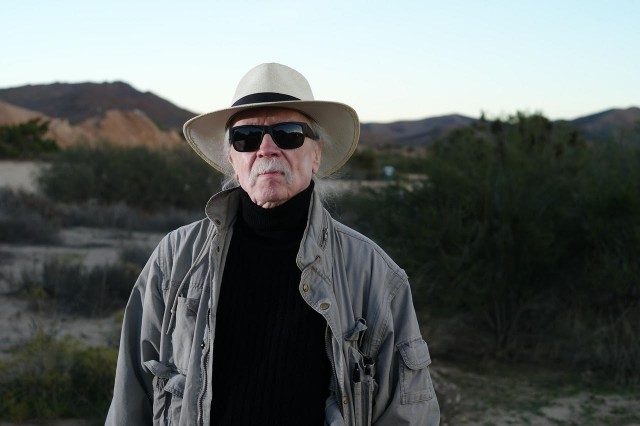
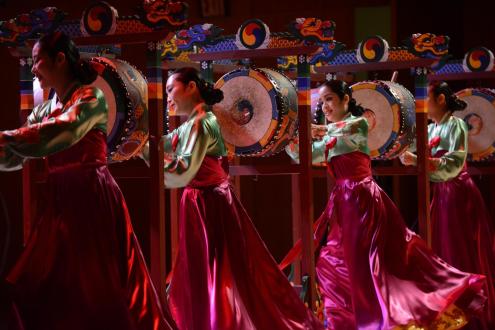
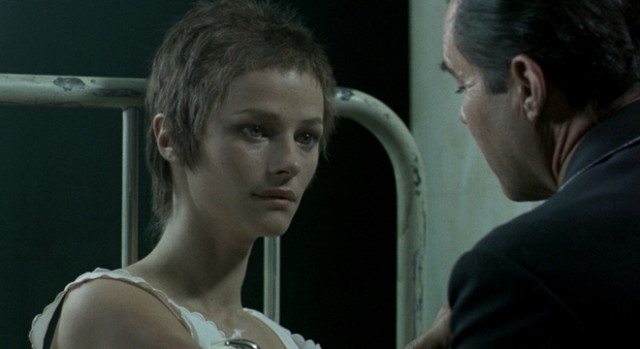
 Disgraceful Nazi porn or searing allegory about the devastating after-effects of the Holocaust on victims as well as Europe as a whole? Lurid exploitation or sensitively drawn, poignant exploration of a severe case of Stockholm syndrome? You can decide for yourself when Liliana Cavani’s ever-so-kinky, extremely controversial 1974 drama, The Night Porter, screens at the very strange time of eleven o’clock in the morning February 5-7 as part of the IFC Center’s eight-film tribute to Charlotte Rampling, being held on the occasion of the release of her latest movie, 45 Years, which has earned the British actress, model, and singer her first Oscar nomination. Rampling is downright frightening as Lucia, a young woman who was tortured as a sex slave by SS officer Maximilian Theo Aldorfer (Dirk Bogarde) in a Nazi concentration camp. It’s now 1957, and Lucia has arrived in Vienna with her husband (Marino Masé), a prominent American conductor. Lucia and Max, who is the night porter at the fashionable Hotel zur Oper, instantly recognize each other, and the moment hangs in the air, neither sure what the other will do. They say nothing, and soon the two of them have seemingly journeyed back to the camp, involved in a dangerous descent into sex and violence behind closed doors. But a small group of Max’s Nazi friends, including Klaus (Philippe Leroy), Hans Folger (Gabriele Ferzetti), and Stumm (Giuseppe Addobbati), who have dedicated themselves to destroying documents — and witnesses — as former members of the SS are brought to trial, become suspicious of Max’s bizarre relationship with Lucia, who could make trouble for them all.
Disgraceful Nazi porn or searing allegory about the devastating after-effects of the Holocaust on victims as well as Europe as a whole? Lurid exploitation or sensitively drawn, poignant exploration of a severe case of Stockholm syndrome? You can decide for yourself when Liliana Cavani’s ever-so-kinky, extremely controversial 1974 drama, The Night Porter, screens at the very strange time of eleven o’clock in the morning February 5-7 as part of the IFC Center’s eight-film tribute to Charlotte Rampling, being held on the occasion of the release of her latest movie, 45 Years, which has earned the British actress, model, and singer her first Oscar nomination. Rampling is downright frightening as Lucia, a young woman who was tortured as a sex slave by SS officer Maximilian Theo Aldorfer (Dirk Bogarde) in a Nazi concentration camp. It’s now 1957, and Lucia has arrived in Vienna with her husband (Marino Masé), a prominent American conductor. Lucia and Max, who is the night porter at the fashionable Hotel zur Oper, instantly recognize each other, and the moment hangs in the air, neither sure what the other will do. They say nothing, and soon the two of them have seemingly journeyed back to the camp, involved in a dangerous descent into sex and violence behind closed doors. But a small group of Max’s Nazi friends, including Klaus (Philippe Leroy), Hans Folger (Gabriele Ferzetti), and Stumm (Giuseppe Addobbati), who have dedicated themselves to destroying documents — and witnesses — as former members of the SS are brought to trial, become suspicious of Max’s bizarre relationship with Lucia, who could make trouble for them all.